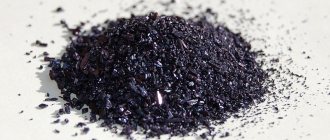Do you know that:
- 30% of women were diagnosed with “inflammatory diseases of the genital organs”;
- 20% of pregnancies end in spontaneous miscarriage;
- 15% of women refuse intimacy due to vaginal discharge and unpleasant odor.
One of the problems that unites all these women is vaginal dysbiosis.
Vaginal dysbacteriosis (Ukrainian – vaginal dysbacteriosis) is a violation of the natural, healthy microflora of the female vagina.
We mainly associate this concept with a disorder of the gastrointestinal microflora. And if you delve a little deeper into female physiology, it will become clear that this is not without reason. The fact is that a woman’s abdominal cavity has a direct connection with the environment.
If vaginal dysbiosis has acquired a chronic form and is characterized by frequent relapses, then the gastrointestinal tract becomes a repository of opportunistic microorganisms. In particular, fungi of the genus Candida. Then the symptoms of vaginal dysbiosis resemble the symptoms of intestinal dysbiosis due to the characteristic white discharge. Because a woman infected with mushrooms not only has a white, cheesy coating on her external genitals, but even her stool may contain an admixture of white flakes. It is noteworthy that in most of these patients both vaginal and gastrointestinal strains of bacteria are absolutely identical.
Therefore, it is advisable to treat vaginal dysbiosis with parallel treatment of intestinal dysbiosis. Indeed, with dysbiosis, in addition to candida, E. coli also resides in the vagina in disproportionately large quantities.
Vaginal dysbiosis in gynecology is far from the last in importance and need for modern treatment. Seemingly harmless, this disease in advanced cases can lead to serious problems with childbirth :
- infection of the fetus;
- the birth of a premature baby;
- even to infertility.
Therefore, specialized medical specialists are ready to offer their patients modern and effective treatment for vaginal dysbiosis. Knowing its causes, having practical achievements in this area, they will tell girls and women how to treat this illness and how to return to pristine harmony with themselves.
Vaginal dysbiosis – causes, symptoms and the importance of timely treatment
Vaginal bacteriosis is always associated with a decrease in local and general immune status. As soon as the body's resistance decreases, the biological balance in the vagina is disturbed by the biological balance of beneficial bacteria, the number of which is naturally large (lactobacteria) - and opportunistic microorganisms, the population of which is normally insignificant (streptococci, staphylococci, candida, E. coli).
The causes of vaginal dysbiosis are represented by a number of factors negative for immunity:
- long-term use of antibiotics;
- the presence of dysbiosis of the gastrointestinal tract;
- hormonal imbalance;
- unhealthy lifestyle (smoking, alcohol, unhealthy diet, frequent stress);
- neglect of the rules of intimate hygiene;
- overly active sex life.
Symptoms of vaginal dysbiosis may appear to a greater or lesser extent. A significant obstacle to diagnosis and timely treatment (which also includes treatment of vaginal dysbiosis) is the fact that most gynecological diseases in our time are asymptomatic. However, the symptoms of bacteriosis tend to intensify under certain conditions: about a week before the onset of menstruation - and after intimacy.
Clinical manifestations of vaginal dysbiosis
- discharge from the genital tract (color and consistency depend on the specific type of causative bacteria);
- itching, burning of the external genitalia and vagina;
- discomfort in the intimate area.
One of the most unpleasant types of vaginal bacteriosis is gardnerellosis. The causative agent is a bacterium, the presence of which is normally calculated in minute quantities. A specific symptom of gardnerellosis is the nature of the vaginal discharge: it has a transparent grayish tint and a pungent odor of rotten fish.
In the life of almost every modern girl or woman there are enough factors for her to learn from her own experience at least once in her life what vaginal dysbiosis is. Due to its prevalence, this disease too often reminds doctors of what bacteriosis is in gynecology and how serious its complications are.
A medical professional will be happy to advise you on how to treat vaginal dysbiosis and how to prevent its development with the subsequent risk of complications.
What is the danger of the disease?
We hear all the time - thanks to advertising - about intestinal dysbiosis and beneficial bacteria living in yogurts. But few people know about the irreplaceable helpers of women’s health - vaginal lactobacilli , which block the path “inside” to harmful microbes. These little protectors produce hydrogen peroxide and lactic acid, which creates the acidity (pH) of the vaginal environment. With a sufficient number of lactobacilli, the acidic environment of the vagina suppresses the growth of pathogenic microbes, and with insufficient acidity, their number increases, which leads to vaginal dysbiosis. That is, the female reproductive system becomes defenseless against the appearance and rapid development of any infections.
That’s when burning, itching, and vaginal discharge begin—with a characteristic fishy smell (there are a lot of them, especially after sexual contact). At first, the genital mucosa is not yet inflamed, but inflammation will quickly develop if appropriate measures are not taken. In addition, with vaginal dysbiosis, the urethra and bladder are constantly infected , which can cause urethritis and cystitis.
It is especially important to maintain a normal balance of vaginal microflora for pregnant women and those who are just planning to conceive. The disease can be one of the causes of miscarriage, the birth of a premature baby and the development of infections after childbirth.
Dysbacteriosis threatens not only pregnant or sexually active women, but also young girls and older women, since the normal vaginal microflora can change due to the following factors :
- hypothermia of the body - leads to a weakening of general and local immunity;
- hormonal disorders: irregular sex life, pregnancy, childbirth, abortion, puberty, menopause, etc.;
- promiscuity, sexually transmitted infections;
- antibiotic treatment, especially long-term or repeated;
- chronic problems with stool, intestinal dysbiosis;
- foreign bodies in the vagina (IUDs, tampons). Incorrect use of tampons during menstruation. Few people know that tampons should be changed strictly every 2 hours, both day and night, otherwise good conditions for the growth of infection arise in the vagina;
- constant use of daily synthetic pads.
Lovers of thongs and casual underwear made from artificial materials are also constantly at risk. Delicate lactobacilli vitally require oxygen, which does not penetrate the body tissues through synthetics.
Taste of vaginal discharge
Even when you take good care of your body, you may experience an unusual vaginal taste. Find out what it can be like in girls and for what reasons, how to get rid of unusual symptoms and much more.
1. Metal.
The vaginal canal has a naturally sour taste. This is very good, because... the acidity of the environment is balanced by bacteria, which form the basis of normal flora. But this natural acidity can result in some scents that are stronger than neutral ones. Some people describe it as a metallic scent. Others even call it a “battery” taste, referring to the acidic contents of portable AA batteries. A metallic taste may actually be more prevalent in the days after your period, as trace amounts of blood may still be in and around the vagina. Blood naturally has a metallic taste due to its iron content.
2. Salty or sour taste in the vagina.
Sweat – from exercise or your natural body's sweat can leave your vaginal area tasting with a hint of salt. Without properly cleaning the external genitalia after urination, especially if there is hypertrophy of the labia minora, you leave a small amount of urine on them, which, when broken down, can taste salty. A sour vaginal taste from excess sweat is also not unusual, and it is certainly not a sign of anything bad in itself.
3. It should not have the taste or smell of flowers or fruits.
If Mother Nature intended your vaginal area to smell like a bouquet of flowers or freshly cut fruit, that's what your vulva would offer. Instead, the natural smell and taste are as close to neutral as possible, with a hint of sweat, musk and body odor. After all, the vulva is often trapped under several layers of clothing, all of which can remain wet for a long time and develop a slightly musty taste as a result. This doesn't mean anything is wrong. This is how girls manifest the nature of bacteria, body fluids and the essence of the vulva itself.
4. The influence of food addictions.
Some foods do affect the taste of your vaginal area, but the list is short—and no, it doesn't include pineapple. Having asparagus for dinner is a reliable source of vaginal odor that you'll be smelling that night. The aroma of urine, which is noticeable for one reason or another, can also affect the taste of vaginal discharge. Curry sauce and highly spicy foods may also have an effect. These products often produce distinct-smelling sweat, and groin sweat can interfere with your vulva's natural aroma and taste.
5. The effect of smoking on the taste of the vagina.
If alcohol and food affect the taste of your vaginal area, then it makes sense that everything else you put into your body, such as tobacco products, will also contribute. Tobacco use can affect how much you sweat and how powerful that sweat is. This, in turn, can affect the smell and taste of the intimate area. For example, smoking tobacco products can cause a sour or bitter, stale taste. Odors from smoking tobacco can also be absorbed into your skin and hair, and the vagina is no exception.
6. Sexual infections and STDs.
Certain conditions or sexually transmitted infections can cause unpleasant symptoms in women. One such possible cause is an infection called bacterial vaginosis. It often causes yellow or gray discharge and a strong, unpleasant vaginal taste that can be described as “fishy.” Urogenital trichomoniasis can also cause odors that closely resemble the smell of dead fish. Unusual vaginal discharge may also occur. If you or your partner discover this, it's time to consult a gynecologist. They can investigate the possible cause and provide treatment to restore your smell and taste.
7. Your vaginal hygiene measures and taste
The vagina is a self-cleaning entity. Left without daily water treatments, it can and will take care of itself and maintain a healthy pH balance until external forces interfere with this process again. Therefore, you only need to wash the outside of your vulva with mild soap and water when you bathe or shower. If you don't practice good hygiene and wash regularly, you may develop unusual or off-putting odors and tastes.
To properly wash yourself, rinse your vulva and groin with warm water. You can use soap if you want, but be careful not to let it get into your vaginal canal. Part the lips of your labia and use a washcloth or your hands to clean around the folds. You should also wash the anus and the area between the anus and the vaginal opening. This area, if not clean, can affect both the smell and taste of your vagina.
What to do, how to fix everything
If the vagina tastes unpleasant, the reason in 50% of cases is a violation of the vaginal pH!
It can taste like a lot of things—salty, bitter, metallic, sour—but what it shouldn’t taste like is disgusting and nauseating. If your vaginal area suddenly develops strong odors or tastes, it may mean that your natural pH balance has been disrupted. A healthy vagina itself does a good job of maintaining a normal bacterial status quo. But when this is disrupted, opportunistic bacteria can begin to multiply intensively—vaginal dysbiosis develops. If left untreated, this can lead to inflammation, irritation and other problems.
If you really want to change its taste, try this!
There are no credible studies or proven ways to suggest that you can change the taste of your vulva.
Sprays and intimate hygiene products can mask the bitter, sour taste of the vagina or deodorize it for a short time - perhaps long enough to be unnoticeable when your partner fondles you, but this may not be permanent. If you're determined to find a way to make your vaginal smell or taste more floral and fresh, keep these tips in mind:
- Don't eat spicy food. Asparagus, spicy or highly flavored foods can cause a specific odor from sweat or unwashed body.
- Avoid drinking and smoking if possible. Tobacco and alcohol can also affect body odor and sweat. Ultimately, these foods can make the vaginal area and its taste more bitter, sour, or metallic.
- Try not to worry unnecessarily without obvious reasons. Unless you smell dead fish or rotting algae nearby, vaginal taste and odor are completely normal.
Practical advice
The natural smell and taste of your vulva are unlike anyone else's, and they can change throughout your own life, even from day to day under the influence of certain factors (day of the cycle, medications, hormonal levels, eating habits, etc.). ). As long as you don't have any signs of a vaginal infection, your smell and taste are fine.
But if you are worried, visit a good gynecologist and talk to our doctors. They can look for any hidden problems, be it an infection or a hygiene problem. If the root cause of any off-flavors is identified, a woman can work more effectively to treat it to restore her natural taste to her intimate area.
Make an appointment with a gynecologist in Moscow for examination and treatment











